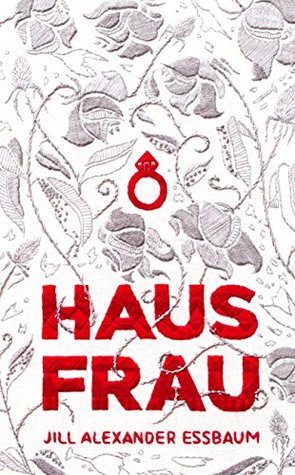Author: Jill Alexander Essbaum
Published: March 2015
Publisher: Random House
Source: Publicist in exchange for an honest review.

A brief synopsis; (Via Goodreads)
Anna Benz, an American in her late thirties, lives with her Swiss husband, Bruno—a banker—and their three young children in a postcard-perfect suburb of Zürich. Though she leads a comfortable, well-appointed life, Anna is falling apart inside. Adrift and increasingly unable to connect with the emotionally unavailable Bruno or even with her own thoughts and feelings, Anna tries to rouse herself with new experiences: German language classes, Jungian analysis, and a series of sexual affairs she enters with an ease that surprises even her.
But Anna can’t easily extract herself from these affairs. When she wants to end them, she finds it’s difficult. Tensions escalate, and her lies start to spin out of control. Having crossed a moral threshold, Anna will discover where a woman goes when there is no going back.

Jill Alexander Essbaum's publications include the full-length collections Heaven, Harlot, and Necropolis, and a chapbook of sonnets, Oh Forbidden. Her poems have appeared in religious journals, hoity-toity journals, online journals, formalist journals, and erotic publications. She is obsessed with Nick Cave and the Bad Seeds, her five cats, puns, sex, Old Time Radio, and God. And: Words. An associate editor for the online journal Anti-, and a blogger for the Best American Poetry blog, she's presently at work on a novel vaguely based on the time she spent living in Zürich, Switzerland. She believes most firmly that wit trumps irony, clever beats disaffected, and, in all things, sincerity is key.
You can find Jill at her Twitter.
The structure of Haus Frau is fragmented, with parts of the story intertwinedwithg flash backs to the past and the occasional time skip forward - but it is never confusing; whilst not out right stated (in all occasions) the change in the narrative and the structure effectively portrays the different parts of the time line.
The protagonist, Anna, is exceedingly dull, there's literally no other way to put it. This I believe, however, was exactly what Essbaum wished for whilst writing this novel. Simply put, this is not about some middle aged mother of 3 who defies the odds in some way and saves the universe; no, based on the author's own experiences, this is a novel about a stranger in a strange land, a serial adulterer, one who makes both bad and good choices - in essence, Anna is just a normal human being. Which is just what makes her simultaneously fascinating and boring.She may not be who we want to be, but she may be who we already are.
As an enthusiast for foreign languages, I was immediately drawn to the German title of this novel. The regional dialect of Swiss German used by the characters shines through with relative ease and the necessary translations (when required).
Now, like with Anna, all of the other characters within the novel are spectacularly plain and, thus, spectacularly real. So, naturally, up until approx. ~ p.290, I was very fond of Anna's husband, Bruno, and actually felt quite bad for him. I won't spoilt it. but if you read it (and I REALLY think you should, links are below!) then you'll see why that perception changes.
Honestly, I loved this book. The ending was as indirect as it was unexpected. There wasn't a dull moment, though that's possibly because I love reading about other people's lives (even if those people are fictional).
“She could go anywhere she wanted. The going wasn’t the problem. The problem was belonging where she went.”
“For...if love is not infinite or eternal? Then I want nothing of it.”







No comments:
Post a Comment